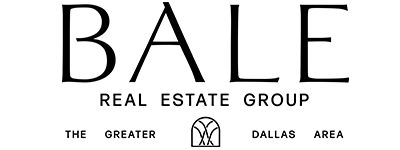
Understanding Home Values in Willow Bend Polo Estates
Willow Bend Polo Estates, located in Plano, Texas, is a prestigious neighborhood known for its exclusivity, luxury homes, and excellent location. Understanding home values in Willow Bend Polo Estates requires a look at factors like location, amenities, and market trends that impact property prices.
Location and Accessibility in Willow Bend Polo Estates
Willow Bend Polo Estates is situated in a prime area of Plano, Texas, offering residents easy access to major highways, shopping centers like Legacy West and The Shops at Legacy, and nearby cities such as Frisco and McKinney. This accessibility plays a significant role in maintaining high home values in Willow Bend Polo Estates.
Luxury Homes and Community Amenities in Willow Bend Polo Estates
Homes in Willow Bend Polo Estates feature expansive floor plans, private pools, and state-of-the-art smart home systems. The neighborhood’s proximity to parks, greenbelts, and recreational facilities further enhances its appeal, making it a top choice for buyers seeking luxury and exclusivity.
Market Trends in Willow Bend Polo Estates
Understanding market trends is essential for evaluating home values in Willow Bend Polo Estates. This neighborhood continues to see strong demand, with home values supported by the scarcity of luxury properties in Plano.
School District Quality
Willow Bend Polo Estates is part of the Plano Independent School District, known for its high academic standards. This attracts families to the area, adding to its desirability and positively influencing property values.
Conclusion
Understanding home values in Willow Bend Polo Estates means considering factors like location, luxury amenities, and market demand. This prestigious neighborhood in Plano, Texas is close to top attractions and offers an unparalleled lifestyle. For expert real estate guidance, contact Bale Real Estate Group at info@BaleRealEstateGroup.com or call 972-469-0332..
Willow Bend Polo Estates Home Values Market Statistics
Updated May 2025
In April 2025, Willow Bend Polo Estates in Plano, Texas, had 3 active homes for sale, with prices ranging from $1,475,000 to $1,825,000. The median list price was $1,512,000, with an average price per square foot of $295. Homes in this neighborhood typically feature 4 to 5 bedrooms and 4 to 5 bathrooms, with sizes ranging from approximately 3,775 to 5,414 square feet.
Updated April 2025
In March 2025, Willow Bend Polo Estates in Plano, Texas, had 3 active homes for sale, with prices ranging from $1,495,000 to $1,799,000. The median list price was $1,495,000, with an average price per square foot of $292. Homes in this neighborhood typically feature 4 to 5 bedrooms and 4 to 5 bathrooms, with sizes ranging from approximately 3,775 to 5,414 square feet.
Updated March 2025
In February 2025, Willow Bend Polo Estates in Plano, Texas, had 3 active homes for sale, with prices ranging from approximately $1,700,000 to $2,100,000. The median listing price was $1,250,000, reflecting an 8.7% increase over the past year. Homes in this neighborhood typically feature 4 to 6 bedrooms and 4 to 6 bathrooms, with sizes ranging from approximately 4,500 to 6,500 square feet. The neighborhood continues to attract buyers seeking luxury living with convenient access to golf courses, upscale amenities, and the Dallas-Fort Worth metroplex.
Updated February 2025
In January 2025, Willow Bend Polo Estates in Plano, Texas, had 3 active homes for sale, with prices ranging from $1,700,000 to $2,100,000. The average home value in this neighborhood was approximately $1,900,000, reflecting a 6.5% increase over the past year. Homes in this area typically feature 4 to 6 bedrooms and 4 to 7 bathrooms, with sizes ranging from approximately 4,000 to 6,000 square feet. The neighborhood continues to attract buyers seeking luxury living with access to amenities such as the Gleneagles Country Club, which offers 36 holes of golf, tennis courts, swimming pools, and dining options.
Updated January 2025
In December 2024, Willow Bend Polo Estates in Plano, Texas, had 4 active homes for sale, with prices ranging from $1,200,000 to $2,750,000. The average home value in this neighborhood was approximately $1,980,000, reflecting a 7.2% increase over the past year. Homes in this area typically feature 4 to 6 bedrooms and 4 to 6 bathrooms, with sizes ranging from approximately 4,500 to 7,200 square feet. The neighborhood continues to attract buyers seeking luxury living and elegant estates in Plano.
Updated December 2024
In November 2024, Willow Bend Polo Estates in Plano, Texas, had three active homes for sale, with prices ranging from $1,450,000 to $2,100,000. The average home value in this neighborhood was approximately $1,307,499, reflecting an 8.3% increase over the past year. Homes in this area typically feature 4 to 5 bedrooms and 4 to 5.5 bathrooms, with sizes ranging from approximately 4,300 to 5,900 square feet. The neighborhood continues to attract buyers seeking luxury living with convenient access to Plano’s amenities.
Updated: November 2024
In October 2024, Willow Bend Polo Estates in Plano, Texas, had three homes listed for sale, with prices ranging from $1,170,000 to $1,695,000. The average home value in this neighborhood was approximately $1,433,333, reflecting a stable market over the past year. Homes in Willow Bend Polo Estates typically feature 4 to 5 bedrooms and 4 to 5 bathrooms, with sizes ranging from approximately 3,968 to 5,905 square feet. The neighborhood continues to attract buyers seeking upscale living with convenient access to Plano’s amenities.


 1. Location and Neighborhood Appeal
1. Location and Neighborhood Appeal Deerfield, located in the heart of
Deerfield, located in the heart of  When buying or selling a home in Shaddock Creek Estates, understanding the market dynamics that shape home values is crucial.
When buying or selling a home in Shaddock Creek Estates, understanding the market dynamics that shape home values is crucial. 

